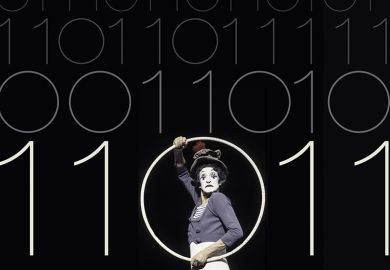The English language is intimately tied up with social class. The elites in this country don't just own the biggest houses, the best land and the smartest cars: they also speak differently from the rest of us. We expect the "establishment" - the landed gentry, captains of industry, top civil servants, senior judges, archbishops and royalty - to speak in "posh" tones, and we assume that cleaners, builders, bus drivers and shop assistants will not. When have you ever heard a trade unionist on television say that something was "fraffly tarsum, dern chew nair", while the employer's spokesperson says "we'll af ter pu' i' on t'table fer t'lads ter discooss"? It just wouldn't seem natural.
The great virtue of Lynda Mugglestone's book is to show that this situation is not inevitable and God-given, but evolved during a specific period of recent history and has been deliberately cultivated by elite groups ever since. It is not a fact of nature that the rich talk in one way and the poor in another. There is no automatic reason why dropping the "h" sound at the beginning of words or saying "talkin" rather than "talking" are associated with the working class. Beliefs that certain ways of speaking are superior to others are just irrational prejudices.
They are, however, extremely widespread and deeply ingrained prejudices.
Mugglestone shows in remarkable detail how they have pervaded literature, education and social relations more generally for several hundred years.
She argues that a major change took place in the 18th century. Many writers before that time had assumed that the speech of the learned in southeast England was "the most pure and correct", as Christopher Cooper wrote in 1687. Later ideologues, however, adopted what Mugglestone calls "a highly normative, restrictive and codifying zeal", and were hugely popular: the 1854 manual Poor Letter H , for instance, which sold in large numbers, ridiculed people who dropped their aitches. The message was that we should all aim for the same accent, namely the one used in "the great public boarding-schools", as one phonetician put it.
I would have liked Mugglestone to start out by saying that elite accents are not purer, more correct, less sloppy or morally superior. At the end of the first chapter she says that uniformity in language is both impossible and undesirable - but she does not say it forcefully enough for my liking.
Nor does she deal with the crucial issue of spoken versus written English, which is where much of the popular confusion comes from.
Written English probably does need to be standardised for reasons of efficiency. Mugglestone could have emphasised that speakers with different accents do not have to learn to speak with the elite accent in order to write standard English. Written language is simply different from spoken: we learn this at a young age and we live with it. A Geordie will say "hoo bin ye the day?" but have no trouble in reading or writing "how are you today?". Likewise, a Zurich resident will say " mer leered iez schwyzertüütsch " for "we learn Swiss German now" but will write the very different " wir lernen jetzt Schweizerdeutsch ".
Finally, I wish Mugglestone had stressed that any variety of English can be used elegantly, efficiently and attractively, just as any variety can be clumsy, unclear and ugly. In an area such as accent and social class, which is a minefield of bigotry and misconception, scholars have a duty to promote rational analysis clearly and forthrightly. A history of intolerance should take a clear stand for tolerance. This is a fascinating book, but it needs to be used with care.
Raphael Salkie is professor of language studies, University of Brighton.
Talking Proper: The Rise of Accent as Social Symbol
Author - Lynda Mugglestone
Publisher - Oxford University Press
Pages - 354
Price - £35.00
ISBN - 0 19 925061 8
Register to continue
Why register?
- Registration is free and only takes a moment
- Once registered, you can read 3 articles a month
- Sign up for our newsletter
Subscribe
Or subscribe for unlimited access to:
- Unlimited access to news, views, insights & reviews
- Digital editions
- Digital access to THE’s university and college rankings analysis
Already registered or a current subscriber? Login



